Speaker
Description
Pētījuma mērķis bija: atrast universitāti Baltijas valstīs, kuras mācību programmas, pētniecība un sadzīve balstīta uz ilgtspējības principiem; un šai universitātē atrast mācību programmu (latviski vai angliski), kuras kursi ne tikai saskan ar ‘zaļo domāšanu’ šodien, bet, kam ir arī vīzija par mācību priekšmeta un atbilstošās tautsaimniecības nozares ilgtspējīgu nākotni.
Darbā apskatīts Baltijas (Igaunija, Latvija, Lietuva) universitāšu ieguldījums izglītībā ilgtspējīgai attīstībai. Pētījumā izvēlētās tās universitātes, kas piedalās Times Higher Education (THE) un/vai Quacquarelli Symonds (QS) ilgtspējas reitingos: Igaunijā-3, Latvijā-5, Lietuvā-7; analizēti to uzstādītie ilgtspējīgas attīstības mērķi (SDG) un mācību programmas, kurās ietverti ilgtspējas jautājumi.
Pētījuma metodika ir balstīta uz brīvpieejas informāciju, kas atrodama augstskolu tīmekļa vietnēs, un tas veikts laikā, kad vadošajās Latvijas universitātēs notika konsolidācijas procesi. Publiski pieejamā informācija par ilgtspējības jautājumiem mācību programmās ir dažāda un ir atkarīga no valsts/universitātes. Papildus apskatītie dokumenti ir: Baltijas valstu ziņojumi ANO par Ilgtspējīgas attīstības mērķu īstenošanu, universitāšu stratēģiskie/attīstības plāni un noteiktie ilgtspējīgas attīstības mērķi.
Saskaņā ar universitāšu politikas dokumentiem, ilgtspēja ir svarīga stratēģiskā joma, kas ir integrēta studijās, pētniecībā un universitātes dzīvē visās apskatītajās Baltijas universitātēs. Taču studiju programmu/kursu brīvpieejas informācijas skrīnings augstskolu mājaslapās nav tik optimistisks: tikai daļa skaidri norāda uz sasaisti ar ilgtspējas jautājumiem. Tādēļ augstskolas mācību programmu īsajā aprakstā skaidri varētu norādīt uz sasaisti ar ilgtspēju, nevis tikai iekļaut vispārīgu apgalvojumu ‘ilgtspējība ir katras mācību programmas sastāvdaļa’. Tiesa, šī problēma raksturīga arī citās valstīs. Valensijā (Spānija) 2024.gadā notikušajā konferencē par izglītību ilgtspējīgai enerģētikai (Sustainable Energy Education) prezentētajos referātos konkrēti ‘atslēgas vārdi’ ne vienmēr bija iekļauti mācību programmu/kursu nosaukumos/aprakstos.
The paper reflects on the contribution of Baltic (Estonia, Latvia, Lithuania) universities towards the education for sustainable development. The study is centred at universities, which participate in the Times Higher Education (THE) and the Quacquarelli Symonds (QS) sustainability rankings, their own Sustainable Development Goals (SDGs) and curricula containing sustainability issues. The methodology is based on open-access information which can be found on university websites.
Estonia: UT offestrong textrs a selection of courses related to the sustainable development goals and traineeship opportunities to help students enhance their future skills to solve complex problems. TalTech offers an inter- and trans-disciplinary programme on Technology Governance and Sustainability where all key components of a sustainable socio-economic future are linked. According to the notice of TLU Vice-Rector for Sustainable Development, sustainability is a component in every curriculum.
Latvia is in the process of restructuring of universities. All LU faculties will realise programmes/courses containing a sustainability component; LU is a member of European School of Sustainability Science and Research (ESSSR) where teaching and research within the remit of sustainability science is further developed. All merged RTU faculties teach sustainability issues, particularly intensively – sustainable energy education and environmental technologies; RTU has joined to the Sustainable Development Solutions Network (SDSN). RSU primarily trains health-care specialists, but Faculty of Social Studies realises a study programme on International Business and Sustainable Economy. LBTU provides knowledge and skills necessary for sustainable development of the society and has included sustainability issues in the study programmes of all faculties; LBTU has elaborated a set of promotional materials ‘Climate-friendly agricultural practice in Latvia’. Although participating in THE Impact rankings, TSI does not refer to sustainability in the description of the study programmes/courses.
Lithuania. Among different KTU programmes there are courses with a sustainability component; the Institute of Environmental Engineering trains leaders in sustainable development. MRU is the leading university in social sciences in Lithuania promoting sustainability and social innovations while contributing to the decision-making process; MRU takes part in the International Association of University Cluster Higher Education for Sustainable Development (HESD). Most of the VDU study programmes include courses on sustainability; VDU implements pan-university project ‘Go Green’, which seeks to bring people together and encourage them to take care of the environment. LSMU pays considerable attention to sustainability issues in the curricula, especially in the field of veterinary medicine and food science. VU has several programmes on sustainable development/finance management and a course devoted to SDGs. VilniusTech is upgrading curricula of BSc/specialists, MSc, and PhD programmes with new modules on energetically and ecologically sustainable, affordable and healthy built environment. KU programmes include courses on sustainability paying attention to renewable energy sources, renewable energetics, and energy efficiency; KU is a part of pan-university project European University for Smart Urban Coastal Sustainability (EU-CONEXUS).
After the universities’ policy documents, sustainability is an important strategic area and is integrated into studies, research, and campus-life at all surveyed Baltic universities. Open-access screening of the study programmes/courses on the university websites is not so optimistic: only a part of them clearly indicate linkage to the sustainability issues and it is not easy to find a study programme just by the description. It could be beneficial if universities distinctly point out relations to sustainability in the description of the curricula instead of including general statement ‘sustainability is a component in every curriculum’.
Publicly available information on sustainability issues in tuition is varied and depends on country/university. Each country organises catalogue of study courses differently and a unified overview is burdened. Besides, references not found (both English and national language) does not mean the sustainability in the curriculum does not exist. Therefore, the study in all Baltic countries on a university’s SDGs and sustainability issues in the university programmes would be more comprehensive if it is carried out in cooperation by locals in each country.
Index:
Tallinn University of Technology, Estonia – TalTech; Tallinn University, Estonia – TLU; University of Tartu, Estonia – UT
Latvia University of Life Sciences and Technologies, Latvia – LBTU; Riga Stradiņš University, Latvia – RSU; Riga Technical University, Latvia – RTU; Transport and Telecommunication Institute, Latvia – TSI
University of Latvia, Latvia – LU
Kaunas University of Technology, Lithuania – KTU; Lithuanian University of Health Sciences, Lithuania – LSMU; Mykolas Romeris University, Lithuania – MRU; Vilnius Gediminas Technical University, Lithuania – VilniusTech; Vilnius University, Lithuania – VU; Vytautas Magnus University, Lithuania – VDU

